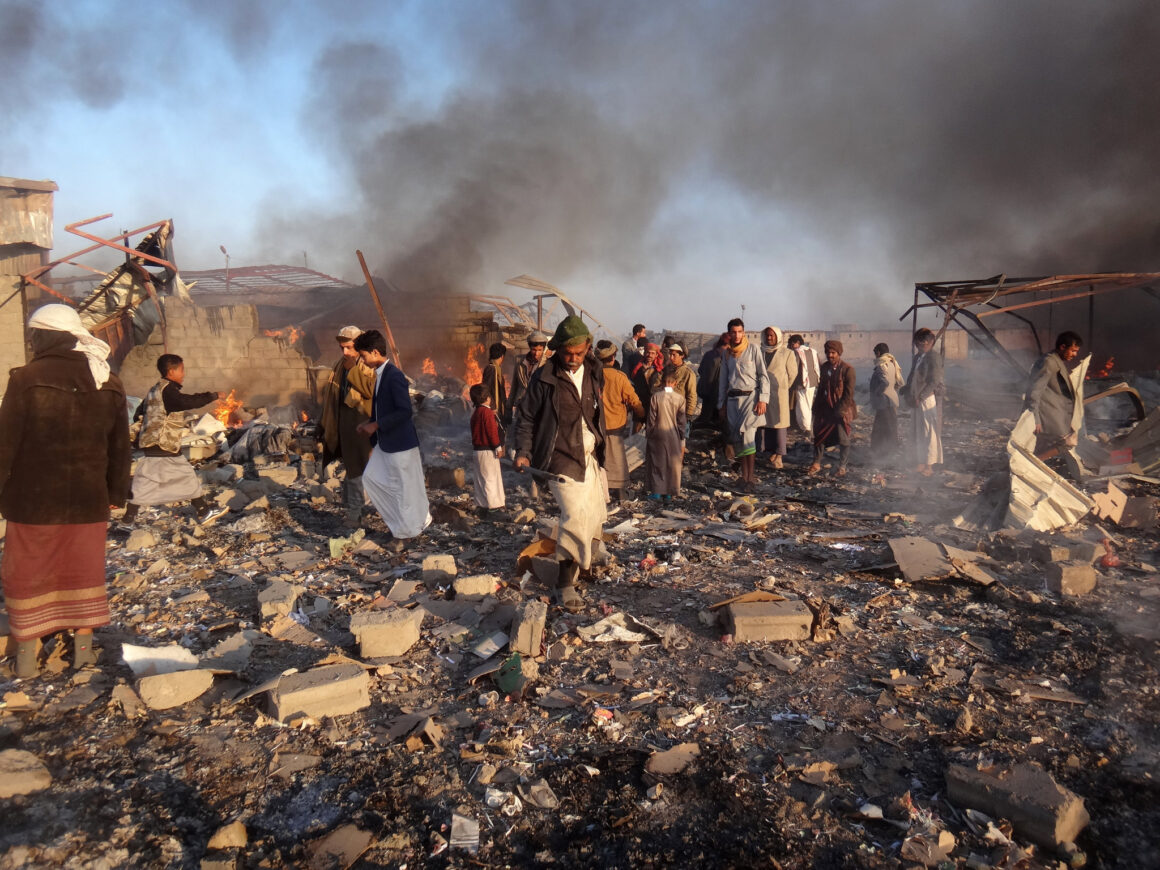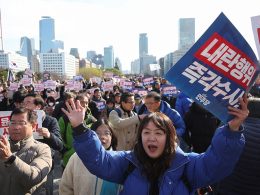By Finn McKenna
Yemen is the poorest country in the Middle East and since 2015 its populace has endured unimaginable suffering due to the civil war it has been engulfed by.
The complete sea, air and land siege of the country has culminated in what’s arguably the worst humanitarian crisis in the world today. An estimated 400,000 people have been killed during this war. The conflict has devastated the Yemeni economy.
Humanitarian catastrophe
Half of the children under 12 are malnourished and experiencing extreme hunger. Cholera and disease are on the rise. Millions of civilians have been internally displaced and trapped within Yemen thanks to the brutal siege imposed by the Saudi regime. Day-in, day-out, families have faced aerial bombardment from the Saudi military, which between 2014 and 2019 made 19,000 aerial attacks.
Many have been rightly outraged by Putin’s murderous war in Ukraine. But what is happening is Yemen totally exposes the cynical hypocrisy of the major capitalist powers in the West. Closer to home, the Irish government has long had connections with Saudi Arabia’s semi-feudal and capitalist dictatorship. Incredibly, on a visit there in 2014, former Taoiseach Enda Kenny congratulated the regime for “their leadership in terms of moderation here in the Gulf region and their desire for peace in light of a lot of complex issues.”
Civil war evolves into proxy war
Yemen is situated south of Saudi Arabia, at the tip of the Arabian peninsula. Yemeni reunification occurred in the early 1990s, and in the aftermath, it was ruled by the autocratic dictator Ali Abdullah Saleh. His brutal, corrupt and sectarian rule was dislocated and ruptured by the revolutionary movements that swept the Middle East and North Africa in 2011.
Saleh was served as a sacrificial lamb of the regime to quell dissent in Yemeni society. He was replaced by his second in command Abdrabbuh Mansur Hadi. The protest movement expressed the deep disaffection and alienation of the poor and oppressed within society as well as expressing sectarian tensions. Like much of the Middle East, sectarianism has often been a dominant negative feature of Yemeni society. The historic responsibility for such divisions boils down to the role and legacy of Western Imperialism in the region.
Houthi rebellion
The unresolved social, political and economic issues that weren’t addressed by Abdrabbuh Mansur Hadi’s government following the Arab Spring culminated in the Houthi rebel uprising in 2014. The Houthis are a Zaida Shia group who have been historically oppressed in Yemeni society. In 2014, in conjunction with the deposed former leader Saleh’s followers, they launched their insurrection, seizing the capital city of Sana’a.
Saudi massacres
This uprising was in direct opposition to the interests of Saudi Arabia. A Saudi-led military coalition, which includes the United Arab Emirates, directly intervened in the civil war. This violent course of action was in the main motivated by the desire to maintain their dominance. The Saudi ruling class feared that a Houthi victory in the civil war would bolster the position and influence of Iran in Yemen, and the region more generally.
The civil war developed into a proxy war, with Western Imperialism arming and aiding the Saudi war effort to the tune of billions upon billions of dollars.
If you want to know where the priorities of the major capitalist states lie, let the following sink in; according to the charity Oxfam, states from the G20 (made up of the world’s richest countries) have supplied Saudi Arabia with $17 billion worth of arms since 2015, three times the aid they have sent to Yemen in this same period!
Revolutionary change needed
This war once again highlights why the economic, political and social order of the Middle East must be overturned by the struggle of the masses. Imperialism and the plethora of capitalist regimes that dominate the region must be brought down!
Throughout the Middle East, there needs to be a revolutionary struggle of workers, poor and oppressed people to make this a reality. The vast wealth and resources in the region must be taken out of the hands of billionaires and big business and brought into democratic public ownership. Repressive governments of the super-rich must be replaced by democratic governments of the working class and poor. Instead of regional rivalries between various capitalist powers, there must a democratic and socialist confederation of the region, where the rights of all minorities, be they religious, ethnic, or national, are guaranteed. This is the socialist future that we in the Socialist Party and International Socialist Alternative, the international movement we are part of, are fighting for.












